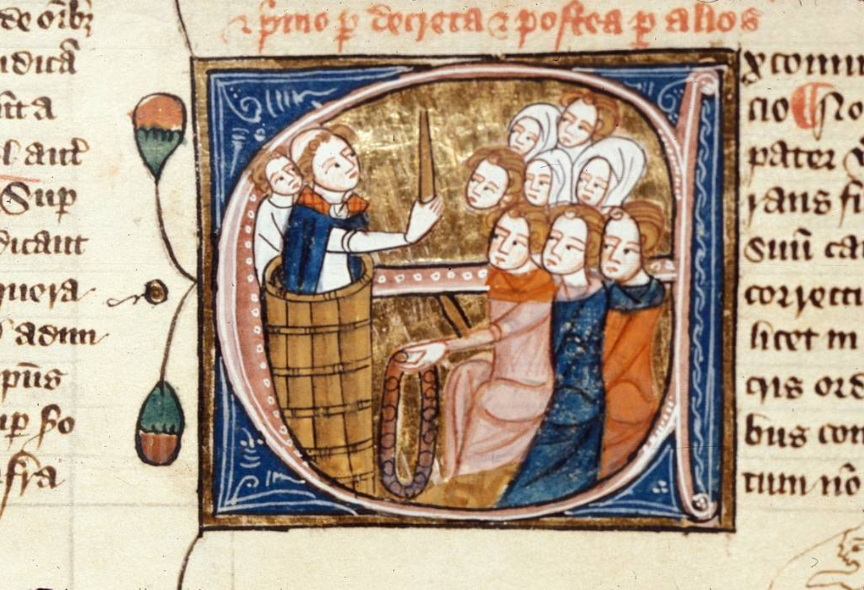Robed figures carrying lighted candles process into a darkened cathedral, followed by a man vested in cope and miter. Chant and a tolling bell fill the grim silence. Finally, the cleric speaks: “We declare him excommunicate and anathema. We cast him into the outer darkness. We judge him damned, with the devil and his fallen angels and all the reprobates, to eternal fire and everlasting pain!” And, with that, Richard Burton turns his candle upside down, extinguishes it against the floor, and casts it to the ground with a loud clatter.
Hollywood created an unforgettable excommunication scene for the 1964 movie Becket, one that looms large in the popular imagination whenever we hear of the church imposing excommunication against someone. With the recent excommunication of Archbishop Carlo Viganò, the former apostolic nuncio to the United States, some Catholics may wonder if a Becket-esque style scene occurred in the Vatican. While a serious act, imposing this penalty is far less dramatic than the Hollywood version.
Excommunication, which derives from the Latin for “out of communion,” is a penalty the church imparts for certain serious ecclesial or moral crimes, usually those that could create scandal if allowed to go unaddressed. The Code of Canon Law states that censures such as excommunication “[have] in mind the restoration of justice, the reform of the offender, and the repair of scandal.”
Excommunication may be imposed either ferendae sententiae or latae sententiae. Ferendae sententiae excommunication is imposed by competent authorities in the church; latae sententiae excommunication is imposed by force of law at the time the crime occurs. The preference is for authorities to impose the penalty after due process for the offender, but when that is impossible, then the penalty can arise ipso facto (“by the fact itself”).
Catholics are usually most familiar with latae sententiae excommunication in the case of direct, procured abortion. Because of the presumed widespread availability of abortion and the impossibility of ecclesial process in every case of abortion, the penalty is assessed by the law itself and not by ecclesial authority. Archbishop Viganò’s penalty was assessed latae sententiae, according to the Dicastery for the Doctrine of the Faith in a July 5 press release. In his case, his public refusal to participate in the process may have precluded a direct imposition of the penalty by church authorities.
The penalties attached to excommunication ordinarily concern administration and reception of the sacraments. If the offender is a priest, as is Viganò, he’s not allowed to celebrate Mass or other public liturgies such as the liturgy of the hours (or even actively participate in them), bless sacramentals, exercise ecclesial duties, or govern others in the church. An excommunicated layperson is prohibited from receiving the sacraments, actively participating in public liturgies, or acquiring office in the church.
These penalties are indeed serious, but do not extend to the next life. While church authorities may circumscribe the kinds of ritual allowed in burying someone who is excommunicated and dies without reconciliation with the church, the deceased is not consigned to hell. The person is believed to face divine judgment in the same manner as does anyone else.
Image: Excommunicatio (Excommunication) from BL Royal 6 E VII, f. 75v/Picryl
















Add comment